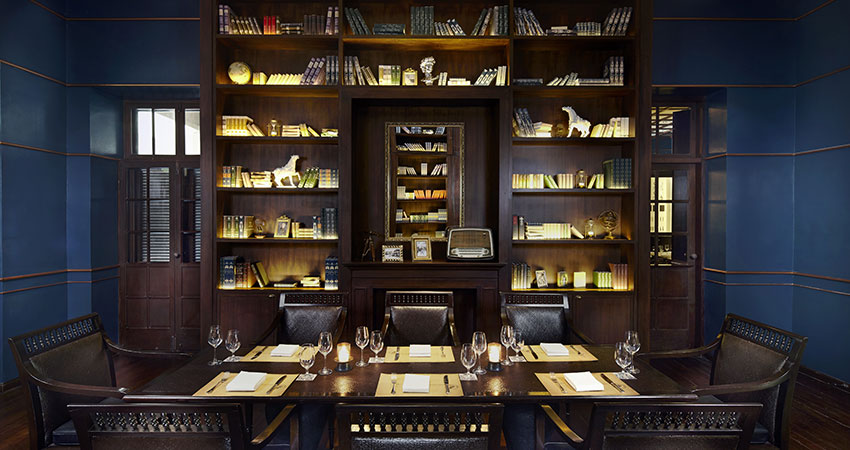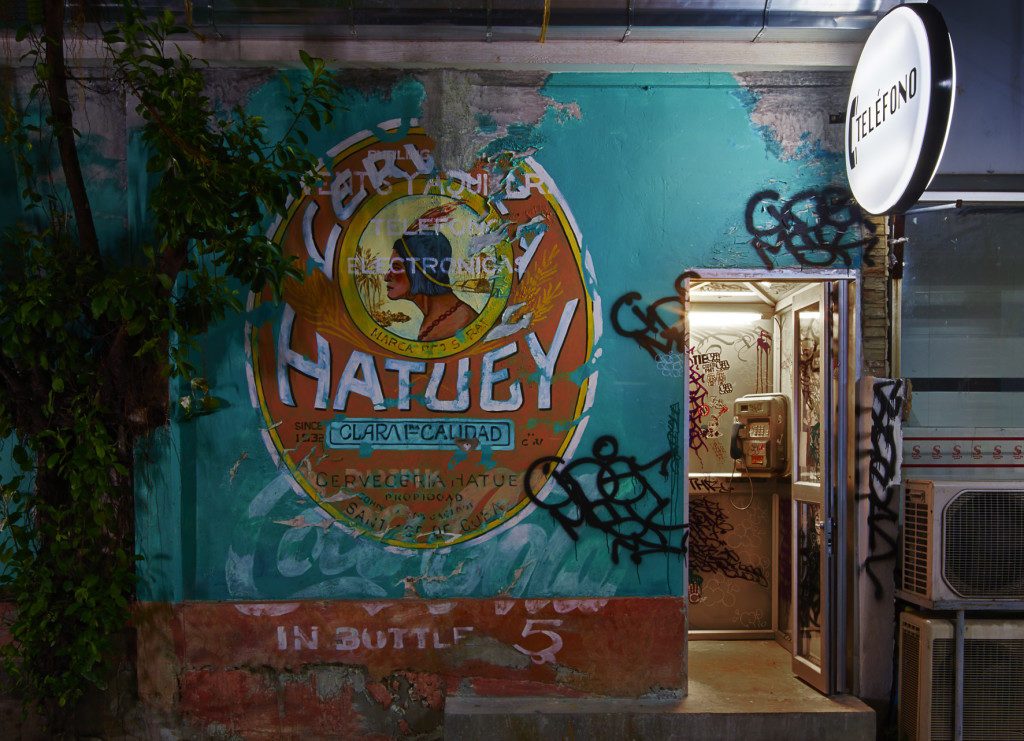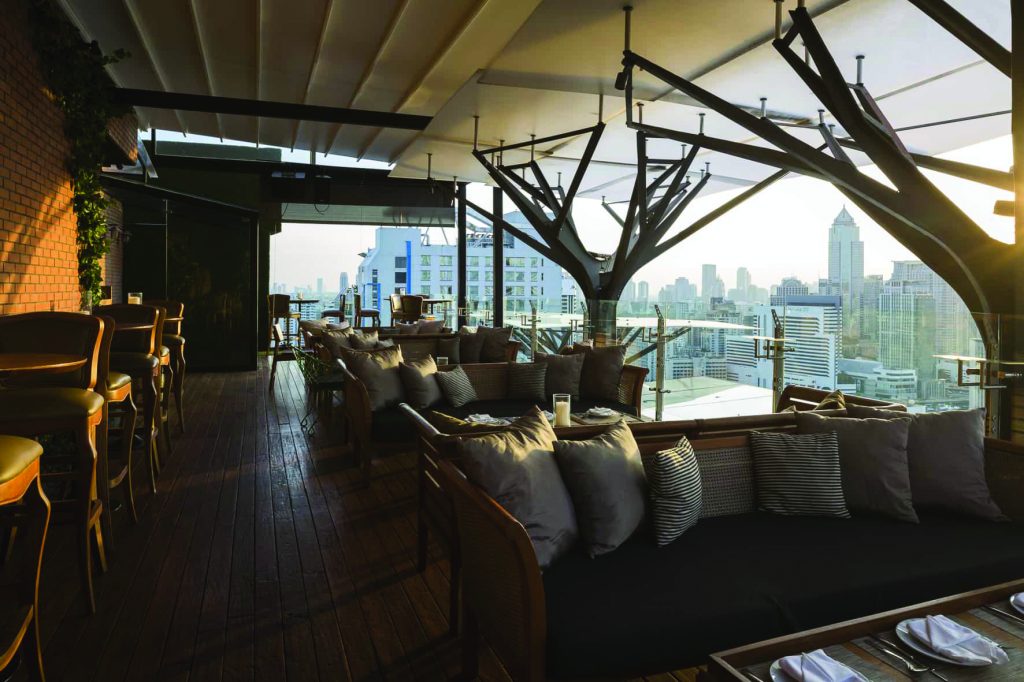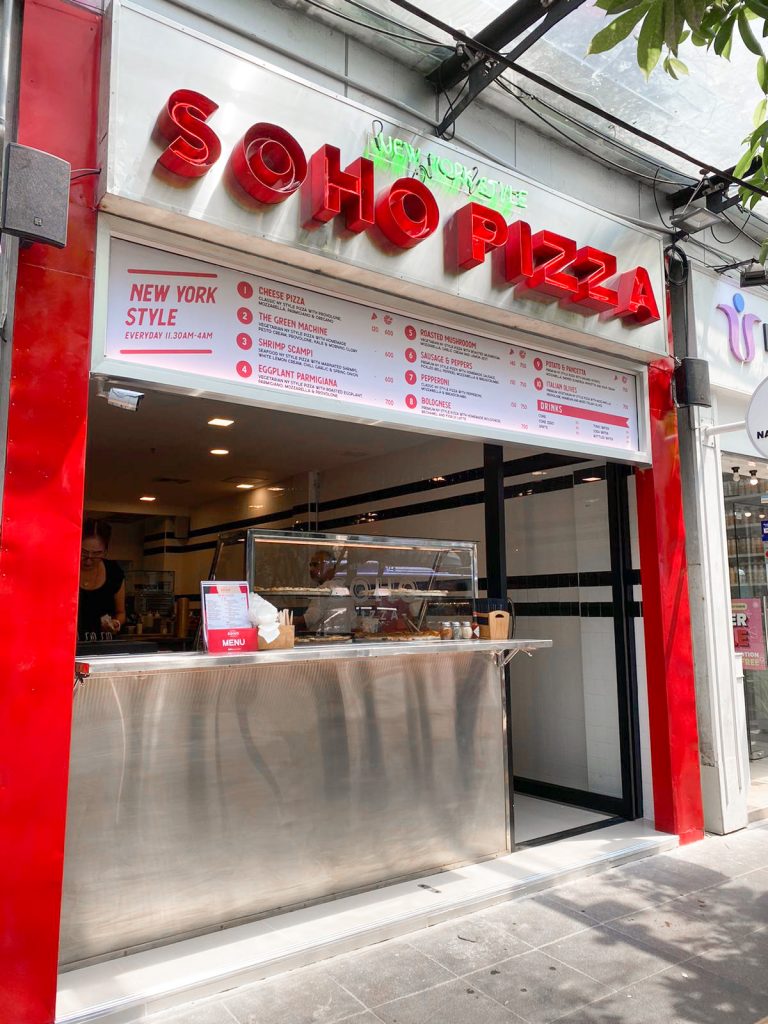A little taste of the future.
By Ashima Sethi
A man who doesn’t need an introduction, Rohit Sachdev is the charismatic Founder and CEO of Soho Hospitality, an integrated company with a diverse portfolio of businesses in the hospitality space. Established over 10 years ago, Soho Hospitality’s primary business is providing design and consulting services that range from feasibility studies to brand development for various hotels and resorts, restaurants, bars, night clubs, beach clubs, food halls, and service departments worldwide. According to Rohit, “We’re very unique in the sense that we have our entire company working under one umbrella.”
Their second business is their restaurant business, as the company owns and operates five distinct restaurant, bar, and quick service brands encompassing Above Eleven, Charcoal Tandoor Grill & Mixology, Cantina Pizzeria and Italian Kitchen, Havana Social, and Soho Pizza, which has just opened the doors of its sixth branch this month.
Over the years, the company’s diverse outlets have generated a loyal following. When asked about how he draws in his consumer base, Rohit replies, “The most important things in hospitality are one: creating a great experience, and two: ensuring that products connect with people. Nowadays, people are looking for an experience with everything that they do, so every service business has become experience-oriented.
However, the big brother of experience is authenticity, and I think we’ve been very successful at delivering authenticity without compromising on quality and attention to detail. We’ve built our company with values in place that ensure our frontline staff who are engaging with customers always deliver exceptional, personalised service. So I think that is the essence of why we have such loyal customers.”
Rohit also offered a glimpse into what to expect from his upcoming ventures. The group is in the midst of establishing additional outlets abroad, including the launch of Havana Social in Yangon, Ho Chi Minh, and Singapore, and Above Eleven on the rooftop of the Marriott Resort Palm Jumeirah, Dubai in the near future.
The company is also expanding to offer digital marketing services for stakeholders in the hospitality industry under a subset called Say So, with details to be formally announced soon. As Rohit puts it, “Hospitality runs through our veins; we eat, sleep, and breathe hospitality. We’ve just completed 10 years since our establishment and now we’re looking forward to the next 10.” So what does Rohit predict is on the horizon for Thailand’s rapidly-changing hospitality scene, especially in light of the COVID-19 pandemic? He gives Masala his insight.
AS AN F&B PIONEER, WHERE DO YOU FIND INSPIRATION?
My past experiences have been key because I didn’t come from a hospitality background. I never worked in a hotel, never studied interior design, but I was always a curious customer. When I lived in New York for 10 years, I was inspired by many hoteliers and restauranteurs, my biggest idol being Ian Schrager who started Studio 54. Not only was he the first to delve into experiential hospitality, he was also the father of boutique hotels. I had the opportunity to experience many of his creations along with others like Stephen Starr and Danny Meyer. They inspired me as a consumer, and down the line, they actually inspired my career.
The concepts that I create are always about where I believe the gaps are in the market, and I look at consumer behaviour to make sure that customers will connect with the brand. I draw inspiration from many things, the places I’ve visited, history, or even the fictitious. For example, when I designed The Service 1921 at Anantara Chiang Mai, the existing building had an immense sense of history because it was the British Consulate in 1914. The first consul, W.A.R Wood wrote a book called Consul in Paradise about what was going on behind the scenes.
Interiors of The Service 1921 at Anantara Chiang Mai.
So I read the book for inspiration, read about the teak logging concessions, games of croquet, and lavish parties, and it led me to construct a fictitious story about how the building was the MI6 headquarters in 1920, complete with a secret bookshelf entrance, menus that came in ‘Top Secret’ folders, and coasters that doubled as encrypted postcards.
For Havana Social, I was inspired by Havana before the revolution in 1957. Back then, Havana was the Las Vegas of the Caribbean and everyone from Rita Heyworth to JFK and Ernest Hemingway used to visit. I wanted to celebrate that moment in time by creating a concept of a bar that got shut down when the revolution started, which has now been re-opened in its existing state.
I think what made these places successful is authenticity, and authenticity is delivered by an aligning of what I call the 10 planets: interior design, lighting design, brand development, uniforms, table top, food, beverage, mixology, music, and service. Within every project we undertake, we try to align those 10 planets. That’s how we’ve always done it.
A hidden, telephone booth-inspired entrance adds to Havana Social’s speakeasy feel.
COMPARED TO WHEN YOU FIRST ESTABLISHED THE COMPANY, HOW HAS THAILAND’S CULINARY SCENE EVOLVED?
Thailand has always had a very food-centric culture. 10 years ago it was a food capital, but today it’s also a brand because of the proliferation of travelling to eat. More consumers want to experience food as part of their travel itinerary, and this has been further fuelled by initiatives taken by the TAT. For example, the collaboration with the Michelin Guide has brought global recognition to Thai restaurants. Similarly, Asia’s 50 Best has seen many Thai restaurants receive acclaim, so all of these things have helped cement Thailand’s position as a culinary capital.
What has changed is that 10 years ago, we were first movers as a restaurant group. Since then, more people became interested in the industry and the scene grew because the barriers to set up a restaurant in Thailand, and the initial CapEx required, are much less compared to cities like London and Hong Kong. This led to a great volume of new start-ups in the restaurant space.
However, nowadays, the restaurant industry has become much more technical. Technology, digital marketing, and social media has created new ways that we have to reach out to consumers, and if you don’t understand the mechanisms of how these work, it becomes difficult to reach an intended audience. Because of tough competition, restaurants now need to operate with efficiency. This comes with having good management of the back of house, front of house, cost controlling, and food and beverage costs.
You’d be surprised at how many restaurants don’t know what their food and beverage costs, and they don’t churn out PnLs every month. But the industry is not what it used to be, it’s getting a lot more complicated and restaurants can no longer get away with just looking at the top line and knowing that they’re making money.
One of Soho Hospitality’s most popular outlets, Above Eleven, perched on the rooftop of Fraser Suites Sukhumvit.
AND IN TERMS OF CONSUMER BEHAVIOUR, WHAT HAS CHANGED?
Consumer behaviour and ideology has changed enormously. There are many differences between Millennials and Gen-Y, and I consider them the catalyst for change. It’s estimated that 60 percent of the Asian population now are basically Millennials and Gen-Z, and because of that and their spending power alone, we’ve had to listen to what they want.
One thing we’ve learnt is that this group of people are coming into the world at a time in which their futures are bleak. Climate change, COVID-19, no job security, terrorism, and prices of goods and services being so high that they can’t buy assets, have made this group of consumers really anxious about their future. This greatly impacts how they think and makes them careful about how they spend their money.
There was a study done where this demographic were asked what they want out of the brands they engaged with, and they said they want to see brands represented by real people not celebrities, they want to know how a company works behind the scenes, they want brands with a sense of purpose, ones that could make their lives better.
So when you translate this change in behaviour to their restaurant experience, these consumers want authenticity, sustainable practices, and brands that are unpretentious, relatable, and value-for-money. They want to go to a place where they can narrate their own experience without being told what to do. This particular demographic are very interesting and extremely loyal, but also very unforgiving, so as restauranteurs, the only way we can survive is to make our brands more human.
BECAUSE OF DISRUPTIONS, F&B OUTLETS ARE EMBRACING GOING LOCAL. WHAT ARE YOUR THOUGHTS?
I do believe that we need to rely on domestic supply chains as much as possible. Primarily because if the next pandemic hits, and we’ve relied too much on external supplies, it could gravely impact our businesses. For example, for Soho Pizza we import a lot of produce, but today we’re trying to find local solutions. It’s imperative to have contingencies.
Disruptions don’t just affect supply but also our food costs because when there’s more demand than supply, the prices of products go up. In the quick service industry, businesses are run very lean and any hit to our cost efficiencies could have a huge impact overall.
One of Soho Pizza’s Bangkok-based outlets.
IN TERMS OF SUSTAINABILITY, DO YOU THINK F&B IS SHIFTING TOWARDS GREENER PRACTICES?
I think everyone is becoming more mindful. The younger demographic want to see that we’re playing a role in guaranteeing their future, so I think sustainability is also here to stay.
At Soho Hospitality, we’ve taken great strides to become more conscious about our environmental footprint. We’ve invested in 15,000 mango trees in a climate park in Myanmar so we’re carbon positive, and waste from our outlets is picked up by SOS daily to be distributed to orphanages and to be used as compost. Do I think we can do more? Yes. I think everyone is realising that we can do more, but it has to be authentically and not because of a CSR campaign. The new generation is smart enough to see through things, so doing ‘good’ as part of a PR campaign doesn’t work anymore.
IN LIGHT OF COVID-19, HOW HAVE YOU HAD TO ADAPT?
COVID-19 has had a huge impact. With the loss of 40 million inbound travellers, many restaurants rely on that demographic for a significant portion of their revenue, especially establishments in tourist-centric areas like central Bangkok and some of the islands.
There’s a lot of changes we’ve made. Unfortunately, we’ve had to let go of staff, which has been painful. We’ve reduced our menus so we have less wastage. We’ve started looking deeper into our key performance indicators and metrics to make sure we’re operating efficiently. We’ve relied on third party delivery wherever possible, and we’ve recently launched our own delivery platform for Soho Pizza so that we can offset the commissions that we pay.
AND WHAT ABOUT LONG-TERM CHALLENGES? WILL THE INDUSTRY CONTINUE TO BE HARD-HIT DESPITE LOCKDOWN EASING?
I think the worst of the pandemic is yet to come because the restaurant industry has never been a cash flow rich business, and it’s often mismanaged in terms of finance and accounting. So, I think that preserving liquidity and ensuring you have liquidity for the next six months is going to be key. The sad fact is that a lot of restaurants don’t have this type of liquidity and it’s going to result in the demise of many establishments.
However, at the end of the day, I consider myself an opportunistic guy and when this is all over, I believe there’s going to be some great prospects. This can act as a great gestation period as there’s also a lot we can do as businesspeople to become better. I think companies that focus on culture, who now realise what it means to have culture, those are the ones that will thrive in the future.
ANY CONCLUDING THOUGHTS?
COVID-19 has forced us to take a step back and assess what’s really important to us as individuals, businesses, communities, and as a country. I believe that moving forward, it’s important that we create an eco-system with our employees, suppliers, partners, and customers, where we’re focused on creating win-win relationships because of what is happening and how it’s impacted us all.










